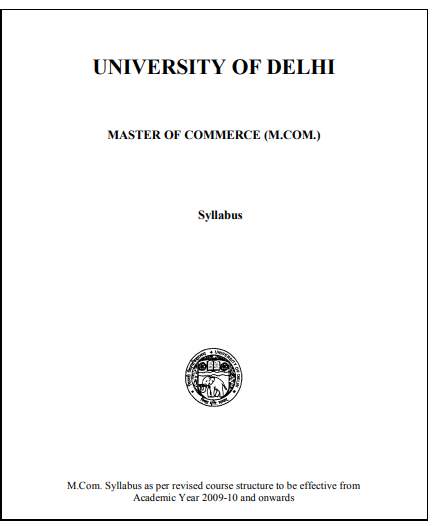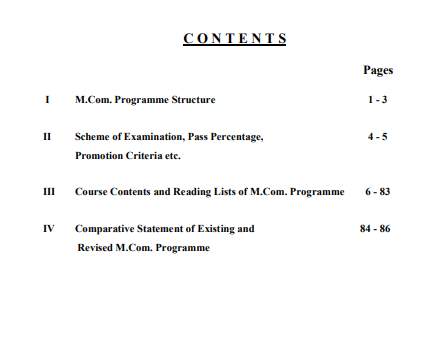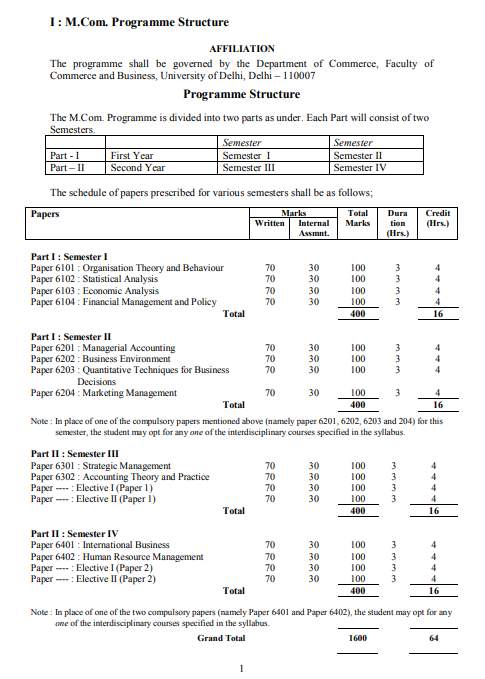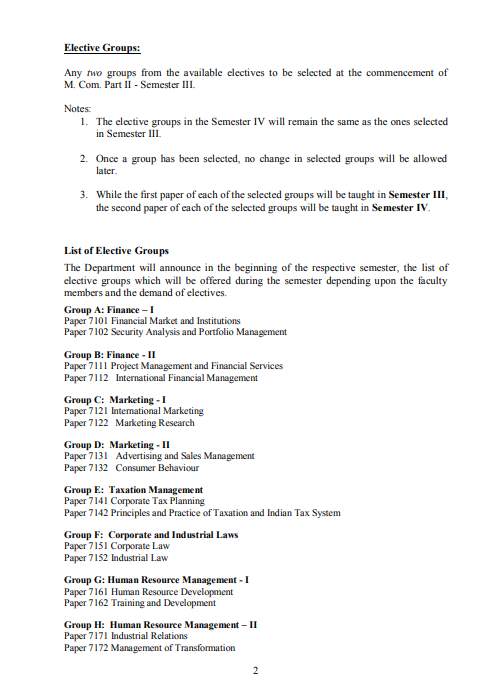|
#6
4th December 2019, 10:25 AM
| |||
| |||
| Re: DU M.Com Entrance Exam syllabus
M.Com Entrance Exam of University of Delhi is of 2 hours duration and shall carry 400 marks. The written test shall be based on the following syllabus and shall contain 100 objective type questions, 25 questions broadly from each of the four units: Unit 1. Economics (including Micro Economics, Macro Economics, and Problems of Indian Economy) Unit 2. Accounting (including Financial Accounting, Corporate Accounting, Cost Accounting, and Management Accounting) Unit 3. Business Statistics and Mathematics Unit 4. Business Organization, Management, Business Law, Company Law and Income Tax Law Each of the 4 units carries equal weights. The above syllabus is drawn from the current B.Com (Hons.) course of University of Delhi. Each question would carry four marks and a wrong answer would result in negative marking of 1 mark. DU M.Com Syllabus Course 6101: ORGANIZATIONAL THEORY AND BEHAVIOUR Course Outline: 1. Organizational Theories and Behaviour: Classical, Neo-classical and Contemporary. Authority, Power, status, formal and informal structure. Flat and Tall structures. Bureaucratization of organisations. Organisational Behaviour-concepts, determinants, models, challenges and opportunities of OB. Transaction cost and organizational behaviours Contributing disciplines to the OB. Individual Behaviour: Foundations of individual behaviour, values, attitudes, personality and emotions. Theory X and Theory Y, Chris Argyris behaviour patterns, Perceptual process. 2. Group Decision making and Communication: Concept and nature of decision making process, Individual versus group decision making, Nominal group technique and Delphi technique, models of communication, communication effectiveness in organizations. Feedback, TA, Johari Window. 3. Motivation: Need hierarchy, Maslow’s Need Hierarchy, Two factor theory, Contemporary theories of motivation (ERG, Cognitive evaluation, goal setting, equity) expectancy model. Behavior modification, Motivation and organisational effectiveness. 4. Leadership, Power and Conflict: Concept and theories, Behavioral approach, Situational approach, Leadership effectiveness, Contemporary issues in leadership. Power and conflict. Bases of Power, power tactics, sources of conflict patterns, levels and conflict resolution strategies. 5. Organisational Culture, Organisational Development and Stress Management: Concept and determinants of organisational culture, Organisational Development: concept and intervention techniques. Individual and organisational factors to stress, consequences of stress on individual and organisation, management of stress. 6. Case Studies: Some cases of real business world are required to be discussed. Suggested Readings: 1. Robbins; S.P., Organisational Behaviour (13th edition), Prentice Hall of India Pvt. Ltd., New Delhi, 2008. 2. Luthans, Fred, Organisational Behaviour, 11th Edition, Mc Graw Hill International, New York, 2007. 3. Robins S.P., Organisational Theory: Structure Design and Application, 3 rd ed.,Prentice Hall of India Pvt. Ltd., 2007. DU M.Com Syllabus     |
